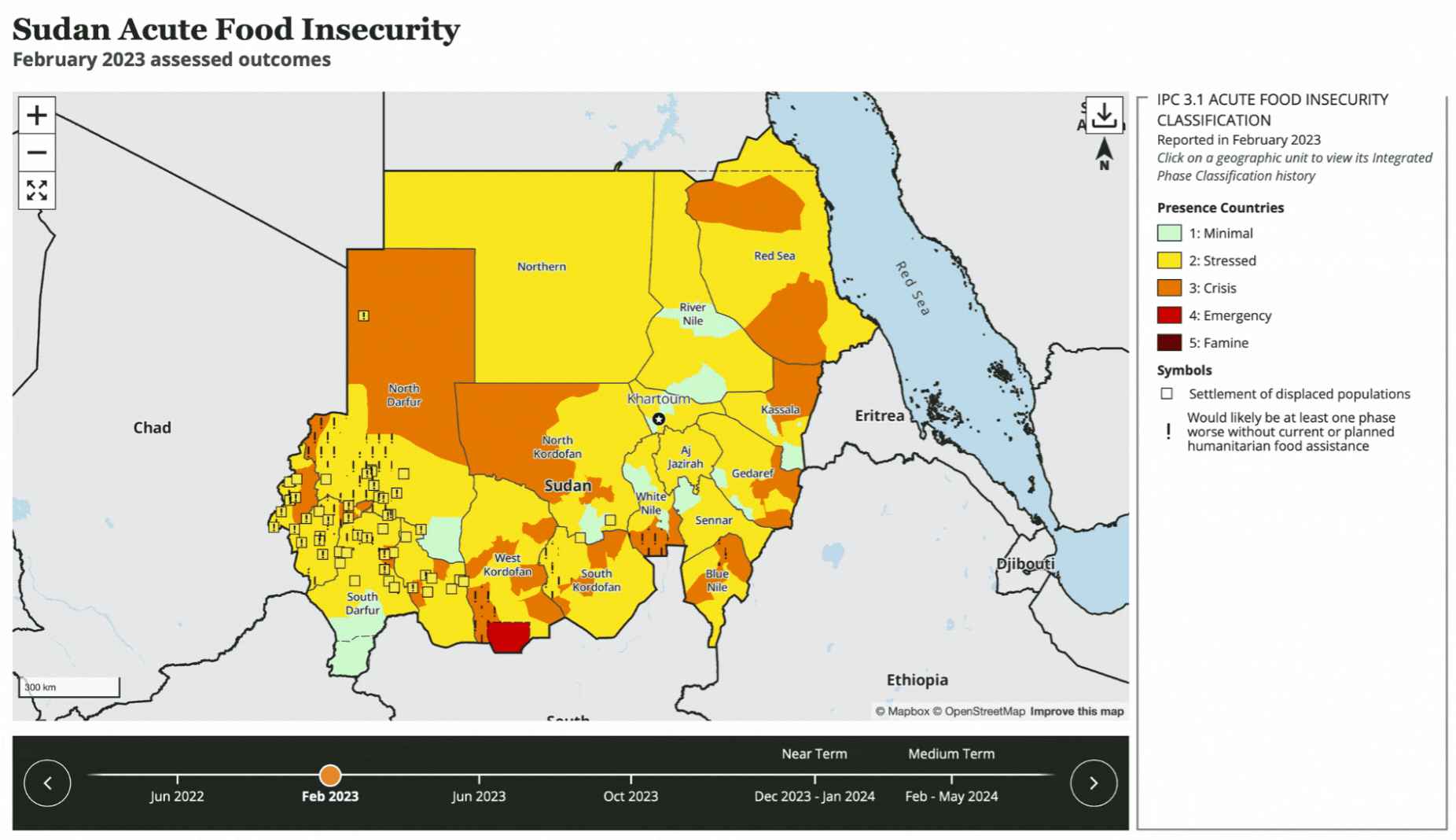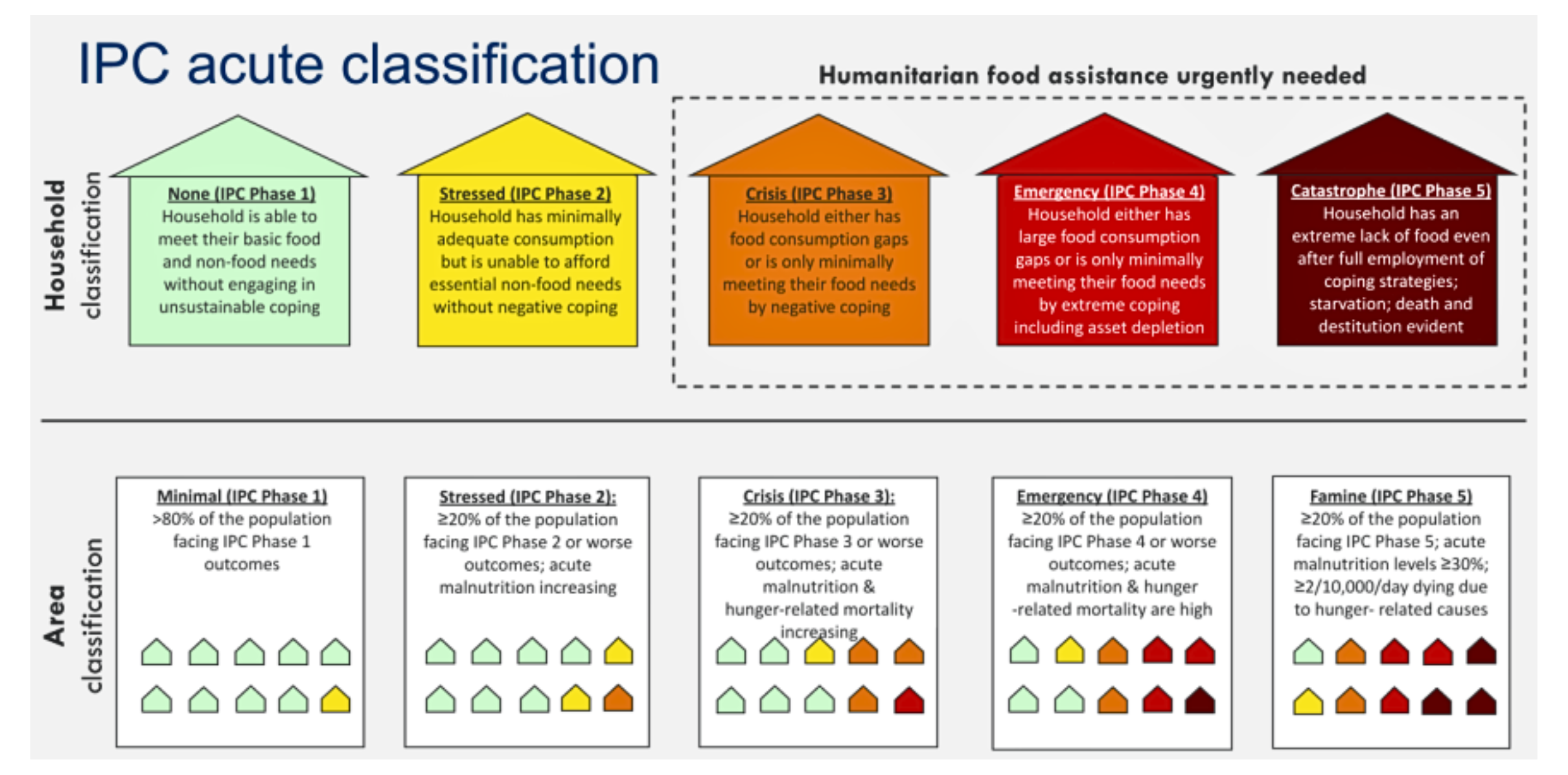Famine is descending on Sudan. When will the world notice?
Editor’s Note: This update includes disturbing language and may not be appropriate for children 7th grade and below. Our Sudan Crisis Guide may be more suitable. To take action, please scroll down to the bottom of the page. Thank you.
It was early May of 2023. War had broken out a few weeks earlier in the West Darfur capital of El-Geneina and Halima hadn’t left her home since. She could hear gunfire and bombings around the clock.
Halima belongs to the Masalit ethnic group, one of Darfur’s historic African tribes. Her black skin was now a death warrant. Arab snipers were fanning out across the city. Roving bands of Rapid Support Forces (RSF) paramilitaries and their Arab militia allies were hunting for Masalit to murder and setting up checkpoints. As shells began falling on her brother’s neighborhood, Halima’s husband went to try to get their family to safety.
The next day she received word her husband had been caught by Arab militiamen and executed. He was unarmed and had been trying to move her family to a neighborhood that a self-armed Masalit militia was barely holding out in.
Halima had no time to grieve because she was now faced with an impossible decision: stay in Darfur and be murdered by the advancing RSF, or try to flee through the killing and hope she’d make it. An Arab friend managed to smuggle Halima and several others out of El-Geneina. She saw the bodies of her people rotting in the streets along the way. Several days later, Halima was walking out of the country she had always called home, unsure if she would ever return.
“He was everything,” Halima said of her husband. “We knew each other since we were children. The men with guns took everything from me. Now we are here. Now we are hungry. When does this end?”
The largest crisis in the world is about to get much worse
Halima is just one of millions of Sudanese who cannot grieve because she is struggling to survive.
Eleven months of catastrophic civil war between the army and RSF has generated the highest rate of forced displacement in the world, with more than 10 million Sudanese having fled to other parts of the country or left altogether. An estimated 20 million children can no longer attend school. Nearly 25 million Sudanese —roughly half the population— are in need of humanitarian aid. Healthcare is non-existent in many areas. Communication networks continue collapsing inside the country, hampering the world’s ability to get information out and relief in.
What information does get out is horrifying. Grisly images of RSF paramilitaries executing army soldiers and unarmed black Sudanese. Army soldiers holding up severed heads of RSF fighters and jeering into the camera. Mass graves. Bodies rotting in destroyed neighborhoods. Many of the combatants in this war boldly claim they are fighting for Sudan’s future. In reality, their hatred and immorality are pushing Sudan into becoming a failed state.
Few seem to have noticed this unfolding disaster. And it’s about to get much, much worse. Be it inside Sudan’s borders or in the growing refugee camps, food is becoming scarcer by the day. Nearly 18 million Sudanese are already facing emergency levels of hunger. And emergency is now turning into famine.
Photo: Map from the Famine Early Warning Systems Network (FEWS NET) showing how quickly Sudan is descending into famine.
It is important to understand that expanding hunger in Sudan is not a mere side effect of the war. The blame rests squarely on the shoulders of Sudan’s senior generals and commanders.
The RSF has systematically looted aid warehouses, fuel stations, markets, banks, and homes virtually everywhere they have a foothold. The army —nominally viewed as Sudan’s governing authority to the outside world— is restricting humanitarian relief to areas under RSF control and trying to shut down local initiatives to bring food to people in need. Sudan’s Humanitarian Aid Commission (HAC) —a long-corrupt agency supposedly tasked with getting outside relief into the country— is at this point likely little more than a front for army intelligence and stands accused of redirecting aid supplies to their own soldiers.
Both sides have destroyed communication infrastructure and curtailed internet access, further disrupting already besieged humanitarian networks and preventing mobile banking and remittances from Sudanese abroad. Preventable disease outbreaks such as cholera are compounding childhood acute malnutrition and, with 70% of Sudan’s already fragile healthcare system destroyed or closed, there is little local ability to prevent further outbreaks. As if all this weren't bad enough, many people have not been able to farm after being displaced or because it is simply too dangerous to do so.
These actions by the army and RSF have created a perfect storm that is morphing Sudan’s hunger crisis into a famine. Anecdotal accounts of starvation that began several weeks ago in areas classified as Emergency (see map above) are now being experienced widely enough to notice a pattern. For example, in Zamzam displacement camp in North Darfur, a child is dying roughly every two hours.
The threat of famine is no longer a threat. The famine is arriving right now.
Briefly defining terms
Virtually every corner of Sudan is experiencing a food crisis. Most of the areas hit hardest by the war and the RSF’s ethnic killing campaigns are in a state of food emergency, with famine conditions already breaking out in some households and neighborhoods.
The Integrated Food Security Phase Classification (IPC) defines these terms the following way:
Phase 3 - Crisis. Households either have food consumption gaps that are reflected by high or above-usual acute malnutrition; OR are marginally able to meet minimum food needs, but only by depleting essential livelihood assets or through crisis-coping strategies.
Phase 4 - Emergency. Households either have large food consumption gaps which are reflected in very high acute malnutrition and excess mortality OR are able to mitigate large food consumption gaps, but only by employing emergency livelihood strategies and asset liquidation.
Phase 5 - Famine. Households have an extreme lack of food and/or other basic needs even after full employment of coping strategies. Starvation, death, destitution, and extremely critical acute malnutrition levels are evident. (For Famine Classification, area needs to have extreme critical levels of acute malnutrition and mortality.)
Photo: IPC Phase 5 is referred to as “Catastrophe” when classifying a household and “Famine” when classifying an area. In certain cases, areas may be classified in “Famine Likely” which indicates the same level of severity as “Famine” but means that the analysis was based on less available evidence than one that results in a “Famine” classification. (FEWS NET)
What does this mean for the rest of 2024?
Setting the technical jargon aside, time is rapidly running out to reverse the hunger crisis unfolding in Sudan and prevent swaths of the population from descending into famine. The U.N estimates roughly 730,000 children are already in need of life-saving treatment for acute malnourishment. Projections state that this already horrifying number will skyrocket to 3.7 million by year’s end. Children, then, will bear the brunt of the death toll if something does not change soon.
Even if hunger levels remain where they are now, hunger and malnutrition-related deaths will likely reach into the high tens of thousands by the end of the year, if not higher. Preventing this crisis from worsening is no longer enough; it must be reversed.
Army generals and RSF commanders have shown no interest in deescalating their senseless war and opening up humanitarian pathways to those most in need. Indeed, by intentionally preventing people from accessing food and denying humanitarian access, both sides are stacking starvation crimes on top of the mass war crimes they are committing. Sudan’s military elite may be driving this crisis, but the international community’s refusal to hold them accountable and find more creative, untraditional ways of getting aid into the country is compounding the damage.
Like many Sudanese, Halima sees clearly what is happening. “If your rules make you work with criminals then your rules don’t work,” she says. “We cannot wait for permission to eat from the people who wish us dead. We are Sudan. We are hungry. When will the world work with us instead of these criminals?”
We’re a nonprofit organization with over a decade of experience working alongside Sudanese heroes. Our Sudanese partners are struggling as the war spreads and needs skyrocket. Your generosity will help them serve the most vulnerable in this time of tremendous need.
$2,200: Fund an entire classroom at Endure Primary School for one semester.
$1,000: Pays monthly salaries of 5 midwives.
$500 - Delivers food and clothing to Darfuri genocide survivors who have fled into South Sudan.
$250 - Supports a teacher and their classroom for one month.
$150 - Pays a nurse assistant’s salary for an entire month.
$100 - Give pencils, notebooks and other supplies to 16 students in Yida Refugee Camp.
$50 - Gives a day’s worth of medicine to three clinics.
Join Miles For Sudan | Donate Stock | Give Crypto
Operation Broken Silence is a registered 501(c)(3) organization. Your donations are tax-deductible within the guidelines of U.S. law.
Shareables
Short statements you can share online and with others. Simply copy and paste.
Share Our Posts: Instagram Stories | Threads | Facebook | LinkedIn
Be it inside Sudan’s borders or in the growing refugee camps, food is becoming scarcer by the day. Nearly 18 million Sudanese are already facing emergency levels of hunger. And emergency is now turning into famine. https://operationbrokensilence.org/blog/famine-is-descending-on-sudan
It is important to understand that expanding hunger in Sudan is not a mere side effect of the war. The blame rests squarely on the shoulders of Sudan’s senior generals and commanders. https://operationbrokensilence.org/blog/famine-is-descending-on-sudan
Virtually every corner of Sudan is experiencing a food crisis. Most areas hit hardest by the war and the RSF’s ethnic killing campaigns are in a state of food emergency, with famine conditions already breaking out in some households and neighborhoods. https://operationbrokensilence.org/blog/famine-is-descending-on-sudan
Time is rapidly running out to reverse the hunger crisis unfolding in Sudan and prevent swaths of the population from descending into famine. https://operationbrokensilence.org/blog/famine-is-descending-on-sudan
Even if hunger levels remain where they are now, hunger and malnutrition-related deaths in Sudan will likely reach into the high tens of thousands by the end of the year, if not higher. https://operationbrokensilence.org/blog/famine-is-descending-on-sudan




